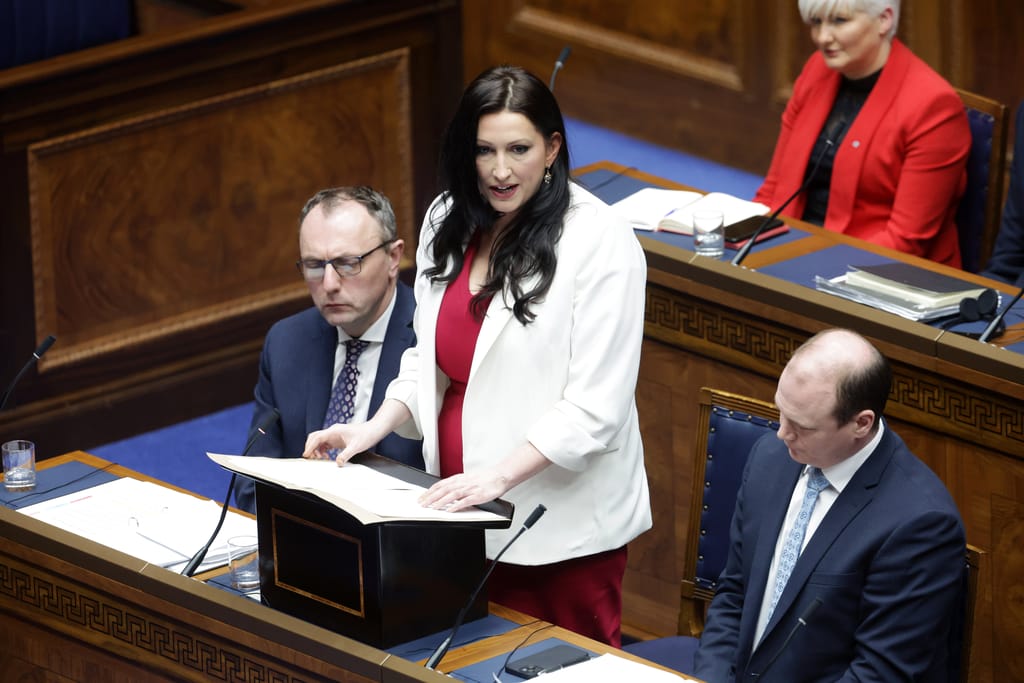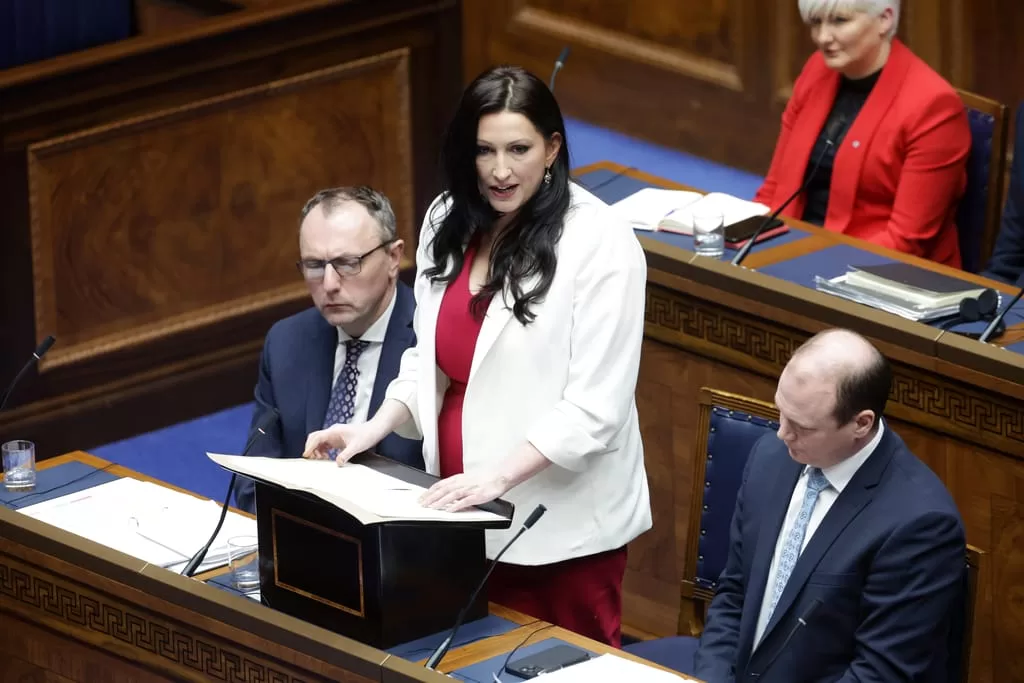“Much suffering and trauma persists in our society as a result of the injustices and tragedies of the past,” O’Neill said in her first remarks in the role, her eyes seemingly fixed on the new deputy first minister Little-Pengelly across the Stormont chamber. “We must never forget all those who have died or been injured or their families. I am sorry for all the lives lost during the conflict, without exception.”
The past is not a foreign country
For her part, Little-Pengelly — an adviser to three DUP leaders — has toed a fine line in expressing loyalty to a father who, in his Ulster Resistance heyday, declared his determination to oppose compromise with Irish republicanism “to the bitter end, to the death.” His pivotal role was highlighted in a BBC Spotlight investigation broadcast in 2019.
Shortly after her jump from behind-the-scenes aide to Stormont lawmaker, and almost immediately into a junior ministry — a speedy promotion that put a sharper spotlight on her family ties to Ulster Resistance — Little-Pengelly wrote that her love for her father was “unconditional” and his 1989 arrest was neither “a badge of shame nor a badge of pride.” She has declined since to discuss his paramilitary record in any detail.
In her own maiden speech, Little-Pengelly likewise offered strong eye contact with O’Neill as she described a childhood traumatized by IRA violence, including the 1991 car bombing of her predominantly Protestant village of Markethill.

“Seared in my experience is that haunting wail of alarms and the sounds of our emergency services, the carpet of glass and debris, the shock, the crying and the panic that shook and destroyed that place I called home,” she said. “I am thankful that our young people today do not have to face that terror.”
It will be fascinating to see whether O’Neill and Little-Pengelly can turn their hopeful words into concrete action in what remains a deeply divided society, with significant security risks that until now have kept O’Neill out of unionist areas and Little-Pengelly from republican ones. That reality is underscored by O’Neill’s acceptance of discreet protection by police bodyguards, an offer declined by her Sinn Féin predecessor McGuinness.
